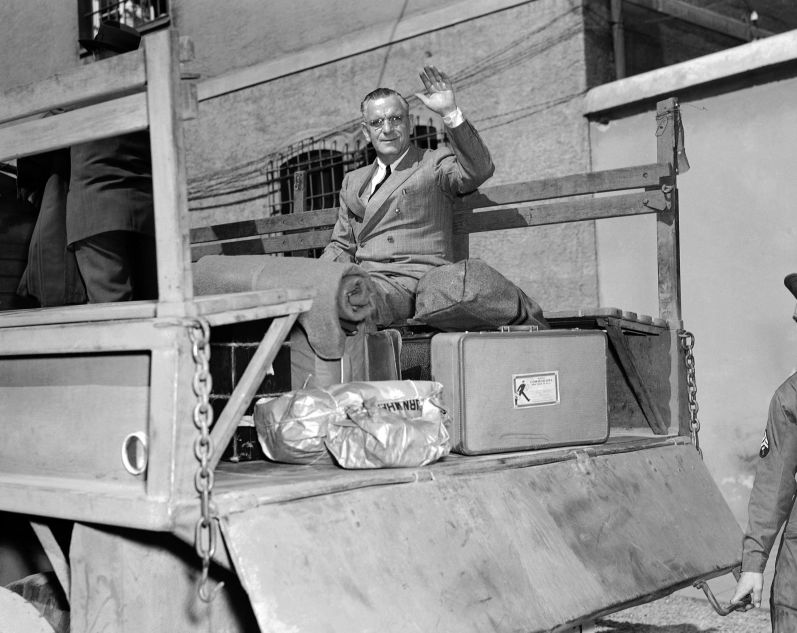On 25 April 1946, Fritz Julius Kuhn, a German-born former US citizen, was released from a prison for displaced persons. He was a notorious anti-Semite, adventurer, and fraud.
His path is similar to that of many German Nazis: a First World War veteran who was awarded the Iron Cross. In the early 1920s he immigrated to Mexico and then to the United States, becoming a naturalised American citizen in 1934.
In 1936, Kuhn became head of the pro-Nazi German-American Bund, and travelled to Germany, just as Berlin was preparing to host the Olympics, for an audience with Hitler. He was expecting his reception to be something special - magnificent meetings and mountains of financial support. Instead, Hitler simply nicknamed him “the American Führer”.
Kuhn organised several Nazi demonstrations in America, at which he stated that the American government has a "Jewish-Bolshevik" policy, and called President Roosevelt “a Jewish protégé”. During one such demonstration in New York, civil unrest occurred. After that, Fiorello La Guardia, the mayor of New York and a dedicated fighter of corruption and crime, decided to deal with Kuhn.
Eventually an opportunity arose to bring Kuhn to justice on non-political grounds and throw the book at him: it transpired that he regularly took money from the Bund's budget and stole $14,000 from it. He himself claimed he did not receive help from Germany, but when a documentary was filmed based on the materials of his case, Kuhn nervously remarked: “If Hitler sees this, I’ll end up broke”. On 5 December 1939, Kuhn was sentenced to five years in prison for theft. On 1 June 1943, he was stripped of his American citizenship as an agent of a hostile state and on 15 September 1945, he was deported to Germany, where he was placed in a camp for displaced persons.
After his release in April 1946, Kuhn settled in Munich. In accordance with laws on denazification, he was re-arrested in July 1947. Six months later, he escaped before his trial, but he was recaptured six months after that near Trier in south-western Germany, near the border with Luxembourg. Kuhn described his escape thus: “The door was open and I just left”.
“Who would have thought that everything would end like this”, he mused about his Nazi career while on trial. Kuhn was sentenced to 10 years in prison, but released two years later. Shortly after that, in 1951, the “American Führer” died aged 55. According to The New York Times, “he died a poor and obscure chemist, unheralded and unsung”.
Source: FBI Records
























